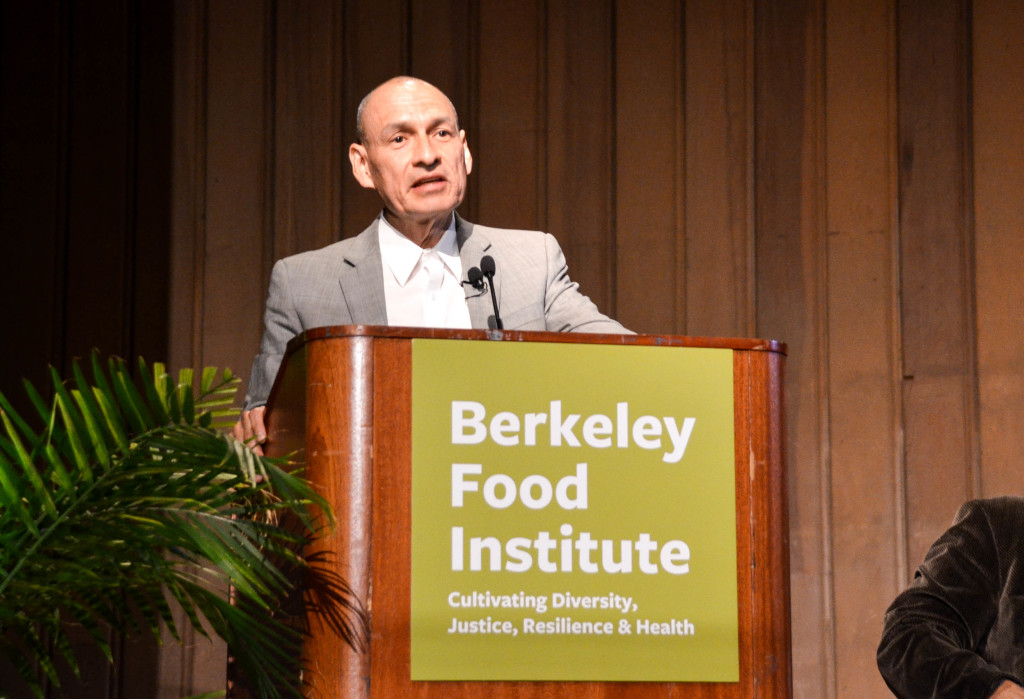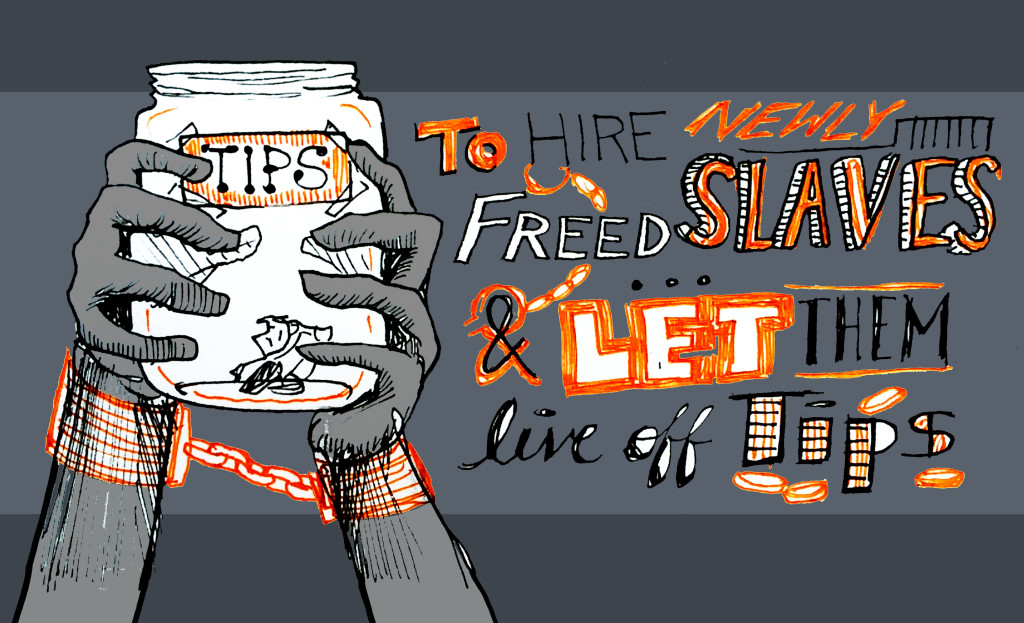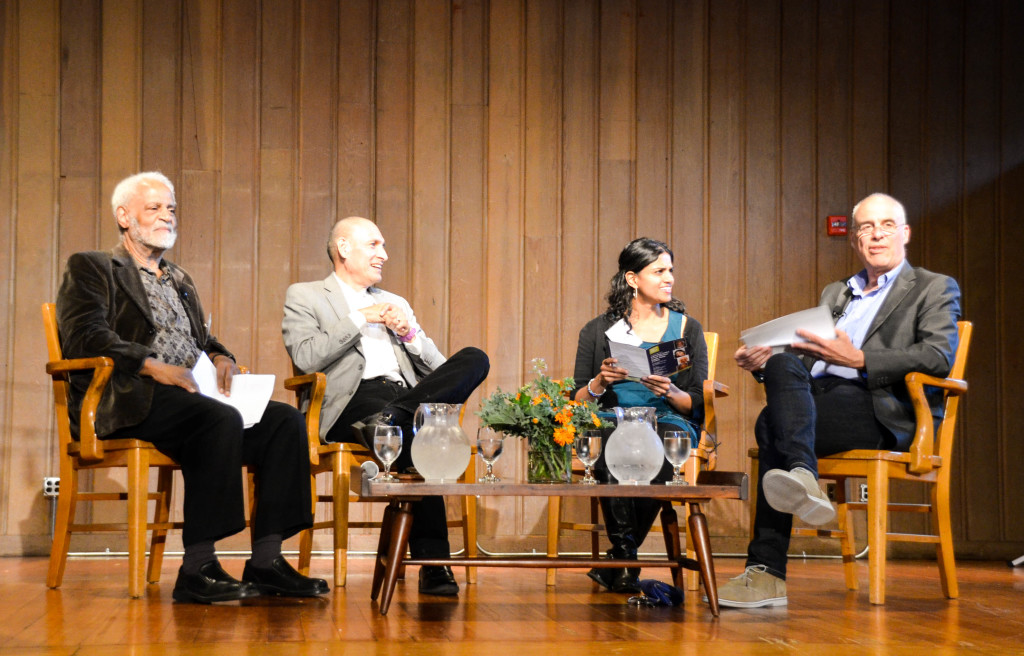At the Berkeley Food Institute‘s latest Food Exchange forum, panelists Ricardo Salvador, Saru Jayaraman, Mark Bittman and moderator Troy Duster discussed cultivating justice in the food system by organizing people to gain political and economic power.
Although the topic seems heavy and difficult to accomplish, the three panelists tackled it well. After a brief introduction from Ann Thrupp, director of BFI, and Duster, the three panelists each spoke about what they felt was most important for the topic at hand.

Ricardo Salvador speaking | Photo by Jocelyn Hsu
Salvador focused heavily on our exploitation of nature and labor in agriculture. He argued that slavery, although illegal, is not just part of our history, and that “The slave model still explains the way in which we provide the agricultural labor in this nation. We just call it by a different name.”
Jayaraman, pulling knowledge from her background in the labor movement, advocated for the 20 million workers in food systems. She emphasized that the minimum wage for tipped workers is $2.13/hour. Like Salvador, Jayaraman references slavery as the mechanism that drives our workforce.

Illustration by Ashley Ding
She argues that the National Restaurant Association and Pullman Train wanted “the ability to hire newly freed slaves and not pay them anything and let them live off of tips.” This is why, when the first minimum wage law was passed, tipped workers were excluded. “If we cannot think about sustainable working conditions and wages as part of sustainable food system, then we will never actually achieve any kind of sustainability in our lifetime,” noted Jayaraman.
Bittman spoke about the food system and how it is not separate from the economic and political system. “We can’t have food justice under the corrupt, oligarchical system that’s running the show right now,” explains Bittman. “We can’t, for example, rein in monoculture without reining in profits. We can’t rein in junk food, in a meaningful way, without reining in profits. Which means we probably can’t rein in literally hundreds of billions of dollars worth of chronic diseases caused by bad diets or miserable working conditions of tens of millions of people without reining in profits.”

Photo by Jocelyn Hsu
After each panelist spoke, Duster moderated a discussion between them by asking targeted questions, including questions from the audience. A key point discussed was how to bring about change. Jayaraman suggests, “[The food movement should organize] in ways that don’t just build collective power at the grassroots and stay there, but actually build collective power that targets those that hold power in our food system, and in my opinion, that is corporations.”
“[The public] need[s] to respond in kind [by saying] this is not a system that we are supporting; this is not the nation that we want to live in,” Salvador adds. “We will either agree with the change that we want or expose the hypocrisy of the nation that we live in.”
Watch the Food Exchange forum, Cultivating Justice in Food Systems: People, Power & Policy below.
A huge thank you to the Berkeley Food Institute for inviting us to cover the event and another thank you to the four speakers for the enlightening and provocative forum.


